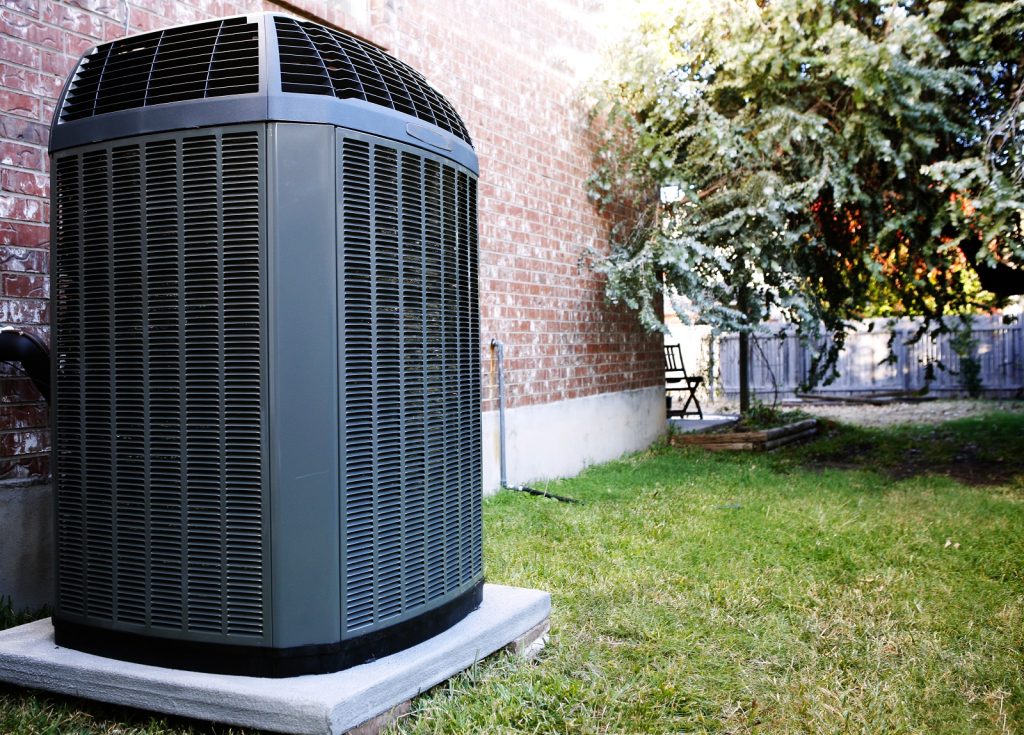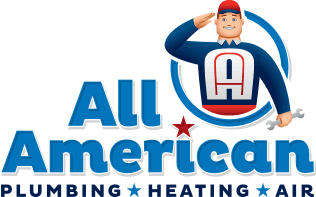When it comes to purchasing a central air conditioner, many homeowners have no idea what size they should buy. This can be an overwhelming decision to make, especially since there are so many different sizes and brands of central air conditioners on the market. In this blog post, we will help you determine the right size for your home. We will also provide you with some tips on how to purchase a central air conditioner that meets your needs and budget!

Central Air Conditioning System: How It Works
Central air conditioning systems circulate cooled air through a home’s ductwork from a central unit installed outdoors. The central unit contains the compressor, condenser, and evaporator. They work by circulating cooled air through the ductwork and into the rooms of your home. The size of the central air conditioner you need will depend on the size of your home, as well as how many people you plan to cool. A central air conditioner that is too small will not be able to cool your entire home, while one that is too large will cycle on and off too often, which can lead to increased energy costs.
What Are The Benefits of Central Air Conditioners?
Central air conditioners offer a number of advantages over other cooling systems. They provide more even temperature control since the unit can cool an entire house rather than just one room or area. Central air conditioners are also easier to maintain and less expensive to operate in the long run because they can be zoned, so you’re not spending money to cool unoccupied rooms.
Additionally, many central air conditioners are equipped with air filtration systems, which can help improve indoor air quality. Finally, central air conditioners have a lower noise level than other cooling systems and can be better at dehumidifying your home.
Overall, central air conditioning provides the most cost-effective and efficient cooling system for a home. With their ability to cool an entire house, maintain even temperatures and improve indoor air quality, central air conditioners are the best choice for many homeowners.
Central Air Conditioner: Packaged System
A packaged air conditioner unit is a single self-contained unit that both heats and cools a home. These units are most often used in apartments, hotels, and offices, but can be installed in homes as well.
Packaged units generally have three main components: an evaporator, a condenser, and a compressor. The evaporator coils are located inside the unit and work to absorb heat from the air in your home. The condenser coils are located outside the unit and work to release heat from the refrigerant. The compressor is located between the evaporator and condenser coils and works to pump the refrigerant between the two coils.
Packaged units are available in a variety of sizes and configurations. The size of the unit will determine the amount of heating and cooling it can provide. The configuration of the unit will determine how the packaged unit is installed. Some packaged units are designed to be installed through a wall, while others are designed to be installed on the roof.
Central Air Conditioners: Getting The Right Size
When it comes to picking a central air conditioner, size does matter. To get the most cooling efficiency from your system and maximize your home performance, you need to select the appropriate size for your home. Here are some things to think about while selecting the ideal size:
- The size of your home: The size of your home will determine the capacity of the air conditioner you need. A unit that is too small will not be able to cool your home sufficiently, while a unit that is too large will run inefficiently and could raise the cost of your energy bills. The first thing to do is to measure the square footage of your home. Once you have this number, you can use a sizing chart to find the appropriate cooling capacity for your needs.
- The climate of your area: The climate you live in is a key factor when it comes to choosing the right size central air conditioner system. If you live in a hotter climate, you will need a larger system than if you live in a cooler climate. The humidity levels in your area can also play a role in the size of the system you need. If the humidity is high, you will need a larger system to properly cool your home.
- The number of people in your home: Another factor that affects the size of the system you need is the number of people living in your home. If there are a lot of people living in your house, you will need a larger system to cool everyone. You may also need to consider adding a room air conditioner to supplement your central air conditioner if there are not enough fans and vents to cool every room.
- Your budget: One of the most important factors to consider when purchasing a central air conditioner is your budget. You will need to decide how much you are willing to spend on a new system. Keep in mind that a larger system may be more expensive, but it will be more efficient and cool your home better.
- The SEER Rating: The Seasonal Energy Efficiency Ratio (SEER) is a measure of how efficiently the air conditioner converts electricity into cooling power. The higher the SEER rating, the more efficient the unit is. You can use this information to compare different models and select one with a higher rating if you are looking for an energy-efficient option.
- Insulation: The level of insulation in your home can also affect the size of the air conditioner you need. If your home is well-insulated, you will need a smaller system to cool it. Homes that are not well-insulated may require a larger system to achieve the same results which also entails higher energy bills.
- Manual J-Code Compliant Load Calculation by a Professional Home Comfort Specialist: This guarantees correct system and air duct sizing to ensure comfort, low utility usage, and long life of your new system investment. By performing a thorough existing air duct inspection, we eliminate those areas of the home that get too hot in summer or too cold in the winter. Our Home Comfort Specialist can share with you all the information in regard to the new system types and technologies available today so you can choose what type of system is right for you and your family.
Installation And Maintenance
When purchasing a central air conditioner system, it is important to keep in mind the importance of the installation process. A professional installer will be able to properly size and install your system so that it runs efficiently and cools your home properly. Improper installation can lead to a number of problems, such as an air conditioner that is too small or large for your home, or one that does not work properly. In addition, if the system is not installed correctly, it may not be covered under the warranty.
It is therefore important to select a qualified and experienced installer who will take the time to understand your needs and install the system accordingly. The installer should also be able to provide you with information on the warranty and how to properly maintain your system.
Maintaining your central air conditioner is important for keeping it running efficiently and maximizing its lifespan. You should schedule regular maintenance checks with a qualified technician to ensure that everything is working properly. The technician will be able to clean the system, check the filters, and make any necessary repairs.
If you do not properly maintain your air conditioner, it can lead to several problems, such as an inefficient system that uses more energy than necessary, or a system that does not work properly. It is therefore important to be proactive about maintenance and keep up with the recommended schedule.
Signs Your Central Air Conditioner Needs Repair or Maintenance
Although your central air conditioner is designed to last for many years, there are certain signs that indicate it may need repair or maintenance. Here are some of the most common signs your AC unit needs attention:
1. Your air conditioner isn’t cooling your home as effectively as it should – If you feel like your AC is running constantly without producing enough cool air, then this is a sign that your AC unit may need to be serviced.
2. You hear strange noises coming from your air conditioner – If you hear any loud or unusual noises coming from your AC unit, then this is an indication that the motor or compressor may need repair or replacement.
3. Your energy bills are unusually high – If your energy bills have been steadily increasing, even though you aren’t running the air conditioner any more than usual, then this could be a sign that your AC unit needs to be serviced.
4. You notice water pooling around your AC unit – Leaks are another common sign of an AC needing repair or maintenance. If you notice any water pooling around your AC unit, then this is a sign that there may be an issue with the drainage system or evaporator coils.
If you are noticing any of these signs, it’s important to call a professional technician to come and inspect your air conditioner. They will be able to diagnose any issues and provide the appropriate repairs or maintenance needed to keep your AC unit running efficiently. Don’t ignore these signs, as they could result in costly damage to your air conditioner if left unchecked.
Remember, regular maintenance is key to ensuring that your central air conditioner runs smoothly and effectively for years to come. Schedule routine checkups with a professional technician in order to avoid any future issues with your AC unit. Contact a local HVAC professional today to ensure your air conditioner is running at peak performance all summer long.
How To Make The Right Decision Regarding The Size of Your Central Air Conditioner
A central air conditioner system is a major purchase that should be tailored to your specific needs. By following the guidelines in this article, you can make an informed choice about the size of central air conditioner that’s right for you. All American Plumbing Heating & Air can help you make this decision and provide installation services so that you can enjoy cool comfort all summer long. If you have any questions or need assistance, contact us today at (209) 710-5629 for more information.


